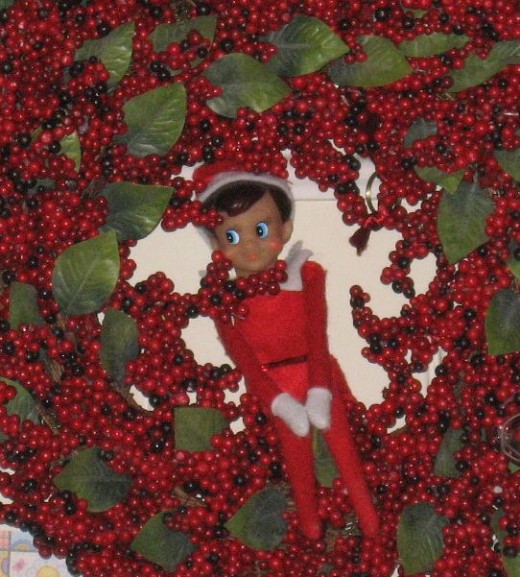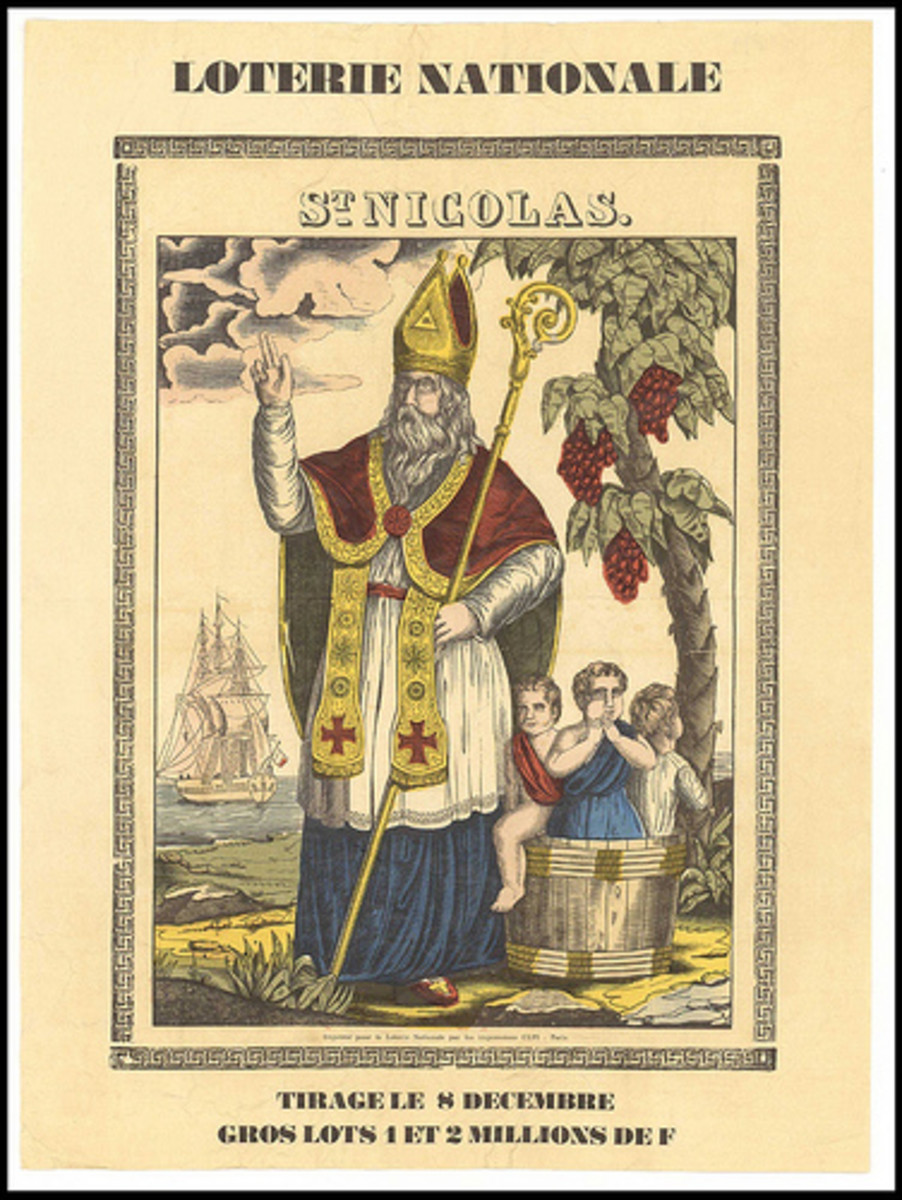In Praise of Santa Claus

"We worked hard for that gift," a mother says, "I'm not letting Santa get the credit." A chorus of voices agree with her.
Christmas is right around the corner. It's filled with gifts and wish lists. Holiday gatherings, food and festivities. It's a bargain hunter's dream, and a budgeting nightmare. With the introduction of a jolly old elf riding in a sleigh full of toys, Christmas turned into a commercial enterprise. A tree costs upwards of $30, or $50, or $75. The gifts beneath it? You don't want to know.
There was a time when we gave gifts from the heart. As a society, our resources were limited so our creativity level was high. Our options were mostly limited to what we could carve or knit or stitch with our own two hands. A few extra coins stashed away might go towards a special gift from the local mercantile.
The story of Saint Nick is generally relayed as a kindly old widower who took pity on a small family on the edge of poverty. The children, or at least the youngest daughter, had no money for a dowry. Their marriageless future was bleak. This gentleman, later called St Nick, supposedly tossed a bag of coins down the chimney and it landed in the youngest girls' stockings, which were drying by the fire.
Whether it's true or not, the message is one of generosity and anonymity. If St Nick wanted recognition, he'd have knocked on the front door.
When I was a child, Santa Claus wasn't just a man in a red suit. He was Magic. He had a hidden workshop in the North Pole, elves who were happy to use their magic to generate toys and a rosy cheeked wife who baked endless cookies. He delivered dolls and hobby horses and puzzles and puppies a la Lady and the Tramp. We went to bed Christmas Eve, and poof! Magic occurred.
Santa was magic. There were no two ways about it. Nothing else could explain it. (Although my parents tried pretty hard to convince me otherwise.)
That's why it makes me so sad when Santa becomes the scape goat for the Gimmies.
The Gimmie-Guy
Around Christmas time, parents pull out old Santa's name. "Santa's watching," they warn their children. They sing songs, "...You better not pout I'm telling you why...Santa Claus is coming to town!" They tell stories about the jolly old elf who sneaks in to leave presents. They make lists, and busy their children writing letters to Santa. "What do you want for Christmas?" they ask, I've even heard parents admonish that children need to figure it out in a hurry or they won't get anything.
And then just after New Years, the same parents moan about the discarded gifts and wasted dollars on toys that are going straight to Goodwill. They complain about their materialistic children. They wonder why kids don't know the value of a dollar, or rather, the dollars spent making their Christmas morning "magical".
Many blame Santa. Since the kids have no one to thank, they reason, the kids must think the toys don't matter. They didn't 'cost' anything. After all, they were created by simple elf labor in an isolated workshop in the North Pole. (Pausing to scribble notes for another editorial style hub. Ahem. There we go.) They appear mysteriously and are easily replaceable.
Retailers stock and label "Stocking Stuffers"; they cash in on the concern of millions that their loved ones will be disappointed on Christmas morning. Santa-suited helpers pose in malls around the nation listening to lists of desires while caregivers stand by taking notes. Parents run around seeking that elusive last toy on the wish list, worried that the others will manage to disappoint if the list isn't 'complete'.
Father Christmas
The spirit of Santa got lost somewhere along the way. In parental desires to make the magic come alive, and material advertising plans, we got side tracked. The 'magic' that kids see isn't the same as what adults envision. Santa doesn't need to leave a pile of toys to be recognized as magical.
In fact, Santa doesn't *need* to leave a pile of gifts. He does it without expectation. That's what makes it magical, the way gifts appear without strings attached. Not the quantity.
Kids don't have to sit down and write thank you notes. They don't need to be polite and thank him. They don't even have to recognize him. Saint Nick, the original, didn't want to be recognized for his generosity. Today's Santa quietly takes the praise for parental spending. But that doesn't make kids materialistic, and it doesn't mean they inherently appreciate those toys more or less.
After all, which would you cherish more? A single rose that magically refreshes itself, or an entire rosebush that's going to grow like a regular rosebush? I'd be more entranced by the single, magical rose.
When Santa delivers magic, we, as parents, get to witness an honest reaction. Kids don't have to police themselves on Christmas morning, they whoop and holler, or shrug and comment on Santas errors. They speak freely. On Christmas morning, they experience the magic of a miracle they can comprehend...gifts appearing from nowhere.
Sure, those gifts might get tossed aside as 'just from Santa' but if they do, I think as parents we might be sending the wrong signal. In our household, the Santa gifts are the ones that are special. The special ones appear magically, simply because Santa thought someone might enjoy them. They aren't abundant, because even the jolly old elf has limited resources.
There is no expectation of return. There are no thanks. No reciprocal gifts. (Unless you count gluten free cookies) The only payment 'Santa' gets are grins.
When Santa gives, he does it because he knows the joy it will bring. That's the spirit of Christmas I want my kids to experience. I may want them to see the creche, to know the Nativity story. But in the end, I want them to believe that we give simply because it feels good to give. That we don't need or expect reciprocation. We can give like Santa gives.
Someday they'll understand the greatest gift of all. But until then, they can appreciate the joy of magical gifts. And they can learn to give quietly, anonymously, for no reason other than generosity. That's why I give Santa credit for 'the good stuff'.






